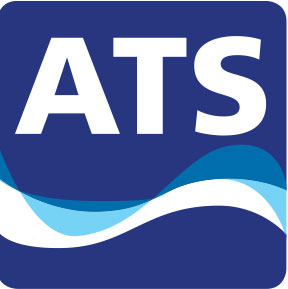If you’ve seen the original Ghostbusters II, you would know that under New York, a massive red, molten lava, thick slime coated the sewers and eventually, pushed up through the manholes and started devouring everything. It took cars in its grasp and people started screaming for their lives. Of course, the congealed mess was a bunch of ugly ghosts but think of this as a wastewater fatberg that’s been building and growing for weeks and even months. Not a pretty picture.
The Fatberg in Wales two weeks ago made headlines around the world and for good reason. Dumping fats, oils, and grease, (FOG) among other things, wreak havoc on a sewer system and in vast amounts present a risk to you, your family, and your environment. You may not know what’s OK and not OK to flush and put down the drain – but you should. You should also know that your local government can be fined heavily by the EPA if fatbergs regularly occur.
What to Flush and Not to Flush
You may or may not have heard about the three P’s in wastewater, but it’s vital you know what they are: Pee, Poo, and Paper. Yep, those are the only three things you should flush down the toilet. I’m sure you’ve heard of “flushable wipes,” and may have even bought them; however, they’re a sewer’s worst nightmare. These wipes contain misleading labels, but who knew, because who doesn’t want wet wipes to clean their or their child’s backsides?
The fact is the wipes don’t biodegrade quickly and therefore, they’ll eventually clog a drain. If someone down the street pours hamburger fat down the drain, this combines with the wipes in a dank sewer system. The result? The birth of a baby fatberg, which then causes a huge clog when the same thing happens repeatedly. Believe it or not, dumping your dear-departed pet goldfish causes issues as well.
Other things you shouldn’t flush are hair, food, paper towels, cotton swabs/balls/pad, cigarettes, feminine products, and cat litter. Some of these things seem like common sense, but others seem benign; they’re anything but and contribute to a wastewater fatberg.
Things You Should Never Dump Down the Sink
It’s not just wipes, of course; fats, oils, and grease are major contributors to fatbergs, along with:
- Eggshells
- Chemicals
- Food scrapings (disposal is OK)
- Medications
- Coffee Grinds
- Ice
- Stringy or thick fibrous peeled fruits and vegetables (corn husks, asparagus, celery, banana skins)
- Bones
- Non-food items
Dump everything into the garbage, and put fats, oils, and grease into a can or bottle you cover with a lid and throw away.
When Wastewater Fatbergs Impact the Community
A wastewater fatberg takes time to develop, but when you finally discover it, it’s already a nightmare and an environmental disaster. You probably don’t know, but there are hundreds of small fatbergs in cities, maybe your own city. Some of these are large and will take weeks and a lot of money to clear. The Fact is, they affect us all, from road closures and flooding to health hazards and aquatic life. How would you like to be driving with smelly raw sewage gushing down the street? So, what’s the solution besides preventing a fatberg in the first place?
ATS Innova Clears Wastewater Fatbergs
Apart from awareness campaigns directed at the public of what not to put down the sink and cities fined when a wastewater fatberg occurs, the ugly truth is that they’ll still happen. At ATS Innova, we designed specialty products that reduce FOG and that awful stench that goes along with it, while saving time and money. Our water experts have proven time and time again how well our Innova MB product line works. Contact a member of our team and let us help you dissolve those wastewater fatbergs and get your sewer system looking and smelling clean again. Contact us at 800.215.6400 today!



